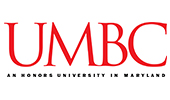
UMBC STRIDE: Engaging Majority Faculty in Diversity Recruitment and Search Committee Bias Training
Challenge
The problem of under-representation at all levels of the academic pipeline, coupled with the loss of existing talent because of inhospitable institutional climates, creates formidable challenges to recruiting and retaining faculty from diverse backgrounds.
Actions
UMBC has instituted a rigorous faculty diversity hiring protocol designed to maximize diversity in the pool of candidates and minimize implicit bias in the selection process. We now require all faculty search committee chairs to attend training on best practices for attracting diverse applicants and minimizing the impact of inherent racial and gender bias throughout the hiring process. Participation of faculty leaders has been essential to the success of these efforts. To that end, most of the training is provided by UMBC STRIDE, a network comprised of a number of the campus’s most distinguished majority faculty. STRIDE members provide peer-to-peer training on the ways that overt discrimination, implicit bias, accumulated advantage and disadvantage, and the influence of gender and racial stereotypes have inhibited the recruitment and hiring of underrepresented minority faculty. STRIDE also provides guidance on best practices that will maximize the likelihood that diverse candidates for faculty positions will be identified, recruited, and hired at UMBC. The group works directly with individual departments by meeting with chairs, faculty search committees, and other department members involved with recruitment and hiring. The program is staffed by a director who works in the Office of the Provost and provides information about best practices and the latest research on these issues to members of the STRIDE network.
Outcomes
Changing the entrenched cultures and practices of academic departments in ways that enhance the recruitment of a diverse faculty has been an ongoing challenge within higher education. The integration of highly respected majority peers as leaders into a series of more intensive training and rigorous recruitment protocols has resulted in increased levels of diversity in the majority of departmental applicant pools and successful hires over the course of the last two years.
Contact
Patrice Mcdermott
Quote
One lesson we’ve learned though our work on a range of diversity initiatives is that success depends in large part on changing campus culture. That is very hard work. Yet by engaging our community in frank conversations about the challenges facing different groups, we’ve found that more and more people recognize both the potential and the achievability of inclusive excellence.